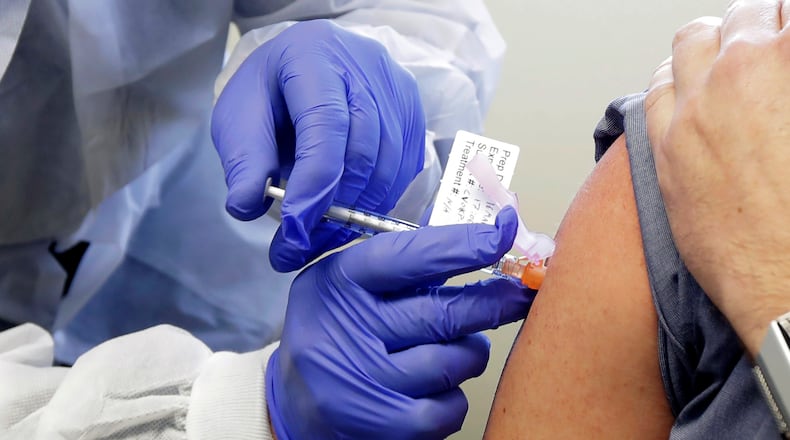As efforts increase to enroll more older adults and people from all racial and ethnic groups in vaccine trial studies, medical experts are becoming more vocal in their desire to see a key group in such research: children.
Dr. Evan Anderson, an associate professor of medicine and pediatrics at Emory University School of Medicine and Children’s Healthcare of Atlanta, was the lead author of a paper co-written by seven others published Monday titled “Warp Speed for COVID-19 Vaccines: Why are Children Stuck in Neutral?”
Anderson pointed to research that shows children can transmit the disease to adults as part of the need for children to participate in vaccine trials, along with data showing the death rate of children from COVID-19 is greater than the flu.
“We owe it to our children to not delay moving forward initial studies to evaluate promising vaccine candidates,” Anderson told reporters during a video conference call Monday afternoon. “We believe it is a critical and important thing to do be doing right now, so that we have a better chance of having a vaccine for children before the next school year begins.”
More than 100 U.S. children have died from COVID-19, according to the 15-page paper in Clinical Infectious Diseases, an Oxford Academic publication. By contrast, flu-related deaths in children reported to the U.S. Centers for Disease Control and Prevention during regular flu seasons have ranged from 37 to 188 deaths annually over the last 15 years.
The trial studies, Anderson said, could start with low dosages. Anderson did not mention an age range for children who would participate in vaccine studies, but suggested it could start with older children. Vaccine studies for other diseases, such as Ebola, have involved children. The idea, Anderson said, “isn’t novel.”
While President Donald Trump has said a vaccine could be ready by November, many medical experts predict a vaccine may not be available until early-to-mid next year. In the meantime, researchers at Emory and elsewhere are continuing to search for vaccine participants.
To date, most COVID-19 vaccine study participants have been young-to-middle age adults. Researchers were cautious about recruiting older adults in studies, although they were initially dying at greater rates from the disease. The paper by Anderson and others say they are unaware of any COVID-19 vaccine studies involving children in the U.S.
Getting children in studies could be a challenge as concerns grow a vaccine is being rushed. Several polls show just one in five Americans would definitely get a vaccine once one is ready, a decline from about one in three Americans in August.
The paper by Anderson and others offers societal reasons for children to be part of vaccine research.
“A COVID-19 vaccine could provide direct benefits on childhood education by allowing a safer return to school, a critical factor in children maximizing their potential,” the authors wrote.
Some researchers have published papers about the need for varied trial participants to ensure a vaccine will be effective, such as children and pregnant women. They stress any vaccine studies conducted for those groups must be safe. The American Academy of Pediatrics said in a statement Monday to The Atlanta Journal-Constitution it supports children being included in Phase III trials, which is the stage when the vaccine has met the safety and efficacy points of the first two phases and is further along in the licensure process.
About the Author
Keep Reading
The Latest
Featured




